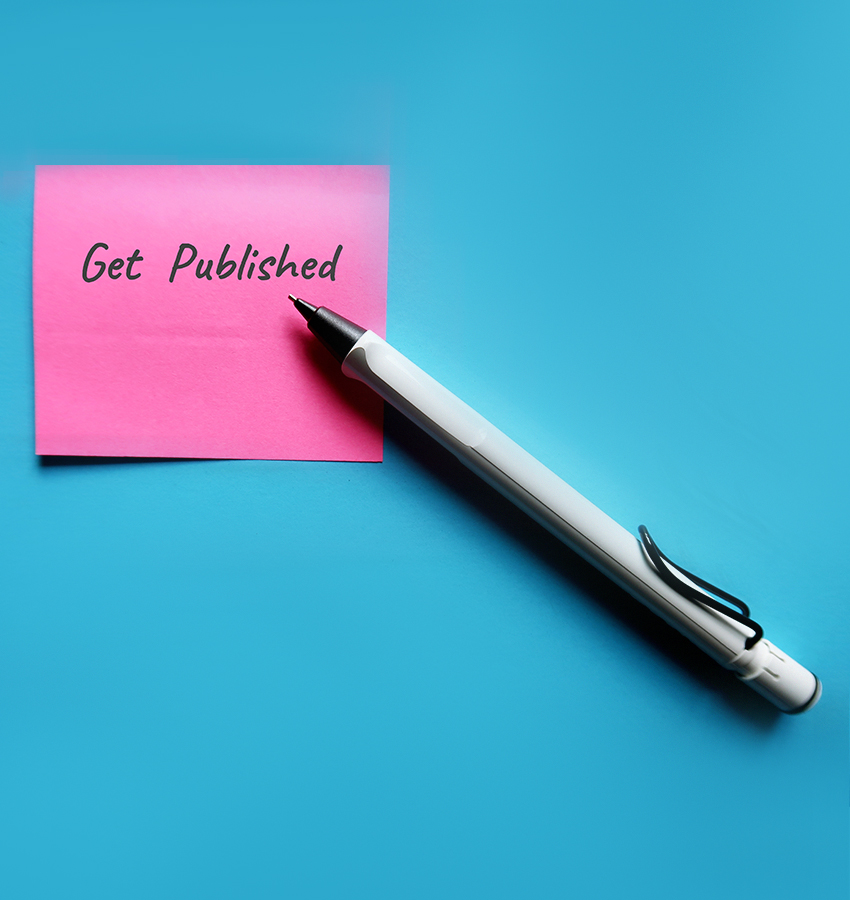
Writers write, publishers print, and readers read, right? Not quite. Between the writer’s creativity and the reader’s consumption sits a long value chain of creative editing. copyediting, conversion into appropriate formats, printing or digital publishing, and in the case of physical books. Arranging the logistics and supply chain to deliver the books to bookstores and eCommerce stores. In this article we examine The 5 biggest Myths of traditional publishing.
With changing technology trends, authors have a plethora of publishing options. From traditional publishing to hybrid and self publishing, sometimes even in purely digital media. This constantly changing landscape and the pros and cons of various options can be confusing for new (and sometimes even seasoned) authors. In this article we will list and dispel the top 5 myths in traditional publishing, because it is still the preferred route for a lot of authors.
1. The Marketing Mystery:
Do publishers do marketing or don’t they? Well, it depends. Publishers have a keen sense of ROI, and will not waste time and money marketing a book that they feel is unlikely to sell much. On the other hand, a book likely to sell will get a lot of marketing support. In short, unless you are a well known author, celebrity, subject matter expert, etc., don’t expect much marketing support.
Unless you’ve found a publisher who is willing to give a big advance and also publish the book in multiple media like audio, assume you won’t get much marketing help. In that case, take charge of the publishing process with self publishing and marketing, generate momentum, and you’ll have publishers approaching you! Many best sellers, including “50 Shades of Gray” began their journeys via the self-publishing route! So focus on the material, and put in the hard work if you want to be the next E.L. James or J K Rowling.
2. Publishers will take care of end-to-end editing, including grammar:
Well, yes and no. The editing process in the traditional publishing workflow can be divided into two distinct types. Developmental Editing and Copyediting. The copyeditor traditionally focused on format, grammatical checks, spelling mistakes, etc. However, that was more substantive when manuscripts were hand-written or typed on a typewriter. These days, with spellchecks and grammar checks commonly available in commonly used software like MS Word.
The publishers get catty about having to spend time on spelling and basic grammar. Its because time spent is money spent. Going forward AI based grammar assistants like Grammarly, Quillbot etc. will make publishers even more reticent about basic checks. Translations from another language, or specialized language in legal etc. books is a different matter. As an author you’re well advised to send as clean a manuscript. As possible to an agent or publisher- not only does it make the reading easier. A professional-looking manuscript never hurts if you want to get it picked up!
3. Authors that sign with traditional publishers lose creative control:
This myth has been around for ever. It evokes a visual of a predatory control freak that will bend the author’s careful creation into a grotesque. A cheap commercial thing and while at it, will swindle the author out of a fair share of the profits. The truth is, publishers want happy authors, while also ensuring the finished product sells to the best of its potential. That’s why authors (yes, even unknown/first time ones) have significant say in what’s essentially a collaborative process between the author.
The publisher’s creatives, marketing department, printers, and artists. After all, it is in everyone’s best interest that the relationship between a quality author and a publisher be a pleasant one with repeating business! Most of the times, it’s authors who are less accommodating of the commercial realities that publishers know very well, than the other way around for the simple reason that an editor has likely met far more authors than the author has met publishers!
4. Publishing traditionally will at least guarantee placement in prominent bookstores:
Everything’s driven by business in the publishing industry with its wafer-thin margins. Bookstores have had it even worse since online book sales, and then eReading came along. Considering that the five major publishers together publish hundreds of thousands of new book titles a year. It’s a simple calculation to realize that most will simply not make it to book shelves, and not because the publisher didn’t try! Therefore the above myth comes closer to reality if it’s stated thus: “Traditional publishing offers the best, but still tiny chance of placement in a prominent bookstore”. Whoever said getting picked up by a bookstore was easy?
5. If you can’t crack “big five”, go “Indie”:
Many authors think the Big 5 publishers5 (PRH, Harper Collins, Hachete Livre, Macmillan, Simon & Schuster) are “too hard” to get into, and it’s easier to get started with an Indie publisher. We’d say that’s based on a misunderstanding of the exigencies of publishers. Small or large, a publishing house will look for things to sell, not necessarily things that are “interesting”. Sure, a topic too esoteric or niche may have a better chance of being picked up at the right Indie house, but that’s assuming the large publishers didn’t reject it because they found it unsellable, but because they didn’t have the right editing/marketing expertise for that topic. In many ways, Indie publishers are even more picky since they simply can’t have as many duds! The point is, for an author the decision of Big 5 or Indie should be based on which publisher is better equipped to handle the book. Its not because one found it unsellable and passed on the opportunity to publish it.
Conclusion
We hope you found the above useful! Did we miss a big myth? Let us know!
Writing is tough. Finding the right agent and publisher is hard too! We can’t really help with that, but we can help you get ready for when you do decide to send in your manuscript! Manipal Digital is a one-stop shop for copyediting, typesetting and conversion services. Whether you need help with just one service or end-to-end document readying. Want to prepare a manuscript to send to an agent? Get in touch with us now for a free discussion!



